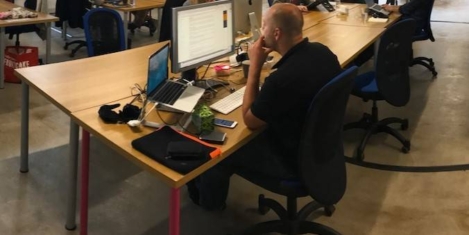March 21, 2018
Wellbeing programmes that focus on staff engagement neglect a need to address mental health
 The mental health of employees, especially those working within high pressured working environments are the number one concerns for UK CEOs. Nearly three quarters (73 percent) of respondents to the annual wellbeing report ‘Employee Wellbeing Research 2018’ from Reward & Employee Benefits Association (REBA) in association with Punter Southall Health & Protection, admitted that high pressure working environments are now the biggest threat to wellbeing. Just a third (34 percent) of respondents provide mental health training for line managers, and despite a similar percentage (35 percent) planning to introduce this training in the next 12 months, one in six (14.9 percent) say they have no plans to introduce this sort of training. Although mental health in the workplace is the top priority for almost three in five (60 percent) CEOs in the UK and the area of employee wellbeing with which their Board is most concerned, currently, the key drivers of wellbeing strategies are to improve engagement and culture. Well over a quarter (30 percent) of respondents said wellbeing strategies are primarily driven by a desire to increase employee engagement and 23 percent to improve organisational culture.
The mental health of employees, especially those working within high pressured working environments are the number one concerns for UK CEOs. Nearly three quarters (73 percent) of respondents to the annual wellbeing report ‘Employee Wellbeing Research 2018’ from Reward & Employee Benefits Association (REBA) in association with Punter Southall Health & Protection, admitted that high pressure working environments are now the biggest threat to wellbeing. Just a third (34 percent) of respondents provide mental health training for line managers, and despite a similar percentage (35 percent) planning to introduce this training in the next 12 months, one in six (14.9 percent) say they have no plans to introduce this sort of training. Although mental health in the workplace is the top priority for almost three in five (60 percent) CEOs in the UK and the area of employee wellbeing with which their Board is most concerned, currently, the key drivers of wellbeing strategies are to improve engagement and culture. Well over a quarter (30 percent) of respondents said wellbeing strategies are primarily driven by a desire to increase employee engagement and 23 percent to improve organisational culture.

















 British workers are lagging behind employees from other countries when it comes to flexible working hours and benefits like extended leave, suggests new research. New independent research commissioned by travel specialists Opodo.co.uk compared Britain with other nations across Europe and the USA, which reveals that British companies are lagging behind other businesses when it comes to flexible working. Three-quarters of employees in the UK (75 percent) don’t believe they have a generous holiday allowance and 84 percent aren’t offered time back in lieu for days worked over the weekend. It’s of no surprise then that 69 percent of Brits don’t think they have a good work-life balance.
British workers are lagging behind employees from other countries when it comes to flexible working hours and benefits like extended leave, suggests new research. New independent research commissioned by travel specialists Opodo.co.uk compared Britain with other nations across Europe and the USA, which reveals that British companies are lagging behind other businesses when it comes to flexible working. Three-quarters of employees in the UK (75 percent) don’t believe they have a generous holiday allowance and 84 percent aren’t offered time back in lieu for days worked over the weekend. It’s of no surprise then that 69 percent of Brits don’t think they have a good work-life balance.











October 25, 2017
Frederick Taylor was a man of his time not a whipping boy for ours
by Mark Eltringham • Comment, News, Workplace, Workplace design
(more…)